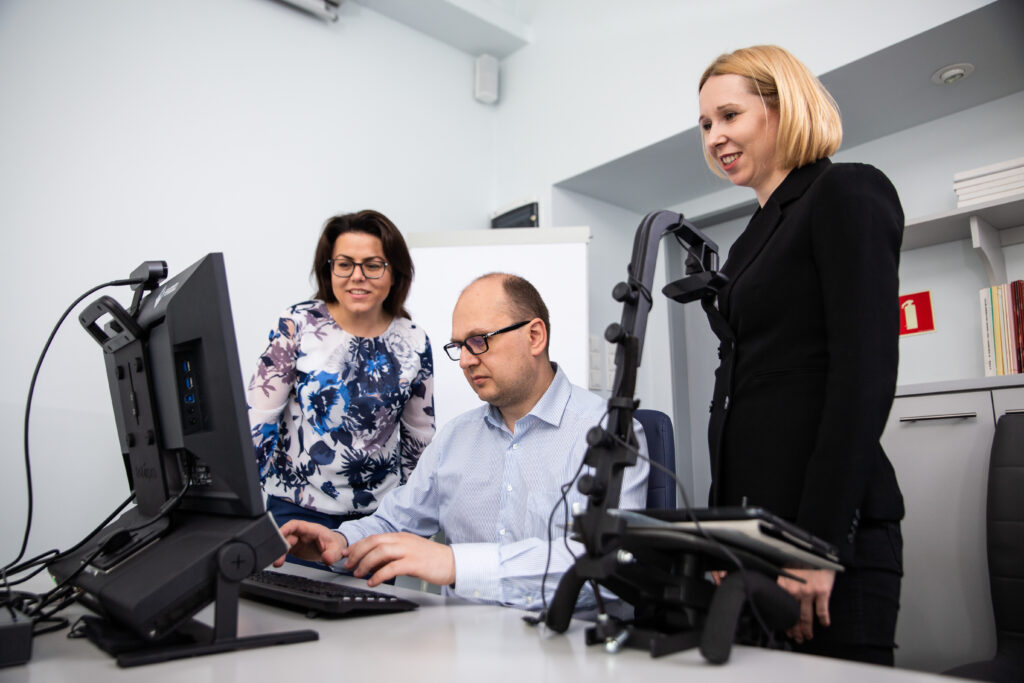Social
research
Social research helps us to learn about people’s opinion and attitudes as well as their lifestyles and behavioural patterns. The foundation for conducting this kind of research is the belief that constantly changing social reality requires permanent observation, in order to understand the underlying patterns and mechanisms.
The social sciences and humanities are cross-disciplinary topics about human culture, which are of fundamental significance for maximising social benefits derived from investing in science and technology.
Sheer technological solutions, without understanding the user, their habits, motivation and surroundings, do not suffice. The lack of implementing the SSH approach results in numerous innovative technologies not being adapted by the target groups. As a consequence, they do not reach their full market potential.

Social sciences involve a wide range of disciplines, such as sociology and economics, psychology and political sciences, history and cultural studies, law and ethics. The contribution of these field of science is crucial for creating knowledge, support policymaking, developing key competences and creating interdisciplinary solutions for social and technological problems. The SSH approach enables the understanding of past, current and future social environments and prompting the answers for complex and demanding questions.
Social research– goals
Social research involves a broad spectrum of projects we carry out at ASM on daily basis.
We apply a flexible approach to identifying research goals and designing all the research process. We start from the assumption that this research should respond to the client’s needs, not the opposite.
Social research might be carried out in order to better understand some emerging or existing phenomena. Furthermore, it might be used as a practical tool, which will contribute to tailoring mechanisms, tools and actions to the needs of a specific social groups.
Thanks to social research, we can learn about reasons, attitudes and aspirations of certain groups of people with selected socio-demographic characteristics. Most of all, however, they not only enable us to answer the question: “what is happening?”, but also “why is it happening?”.
Social research – examples
Examples of studies and analyses carried out within the framework of social sciences and humanities (SSH):
analysis of decision-making processes, behavioural patterns, motivation, needs, habits, attitudes and awareness in the society;
analysis of aspects related to participation, co-creation and involvement of citizens in shaping technological solutions;
analysis of the influence of the new technologies on the society, analysis of positive and negative external effects;
elaboration of scenarios and research on the future, strategic and technological foresight.

We collaborate with numerous institutions in Poland and abroad: Ministries, Marshal’s Offices, Job Offices, Business Support Organisations, Higher Education Institutions, to name but a few; as well as with individual clients.
Our social research techniques
We use the following techniques in our social research projects:
CATI
Telephone interview
CAWI
Online survey
PAPI
Pen and paper survey
Face to face FGI
Group interviews
FGI on-line
Group interviews
Ethnography
Observation and description
IDI
Individual face to face in-depth interviews
ITI
Individual online in-depth interviews
CAPI
Computer-Assisted Personal Interviews
Dyads, tryads
Small group interviews
User tests
Product tests, consumer’s assessment
DR
Desk research, secondary data analysis
MOBI
Face-to-face survey on mobile devices
Eye tracking
Biometric research – tracking the eye movement
Face tracking
Biometric research – facial expression analysis
Mystery e-mailing
Mystery shopper – testing customer service via email
Mystery calling
Mystery shopper – testing customer service via phone
Mystery shopping
Mystery shopper – testing face-to-face customer service
Project design methods
Design thinking, iterative design
Motion tracking
Motion capture - XSENS, Vicon, Kinect
Auditorium questionnaire
A questionnaire filled in by a specific group being in the same room
EMG
Biometric research – analysis of micro expression of facial muscles
EEG
Biometric research – brain activity analysis
GSR
Biometric research – the galvanic skin response
Why choose our offer?

Since 1996, we have been carrying out social research. Our team of experts is highly knowledgeable on sociology, economics, statistics, political science and other fields. For years we have been using our knowledge and expertise to create our original research strategies.
Owing to the highest quality standards (PKJPA, ESOMAR), professionalism and acquired experience, we take great pride in high indicator of returning customers.
We are specialists in this field, which translates to our clients achieving their expected goals.
We will be happy to answer your questions and suggest research methods most suitable for each individual case. We kindly invite you to get familiar with our offer.
Social research - price list
The social research, which we carry out, is customised and tailored to each client’s needs. Therefore, we strongly recommend contacting us, in order to obtain a detailed price list.
FAQ
Social research is a type of research, which explore people’s opinions and attitudes, as well as their lifestyles and behaviour patterns. Social research stems from the belief that the constantly changing social reality demands permanent observations in order to grasp its regularities and mechanisms.
We apply quantitative methods, both online (CATI, CAWI) and offline (CAPI, PAPI), as well as qualitative methods (in-depth interviews – IDI, focus group interviews – FGI, workshops and similar). In social research we use both primary and secondary data sources (publicly avaiable data, or other documents, reports etc.) This allows us to conduct comprehensive, multidimensional analysis.
Social research is carried out by our highly experienced team of sociologists, economists, political scientists and lawyers. Moreover, we collaborate with numerous higher education institutions In Poland. We have a permanent staff of moderators, who for many years have had carried out varied social research for many years.
We support all the industries
















